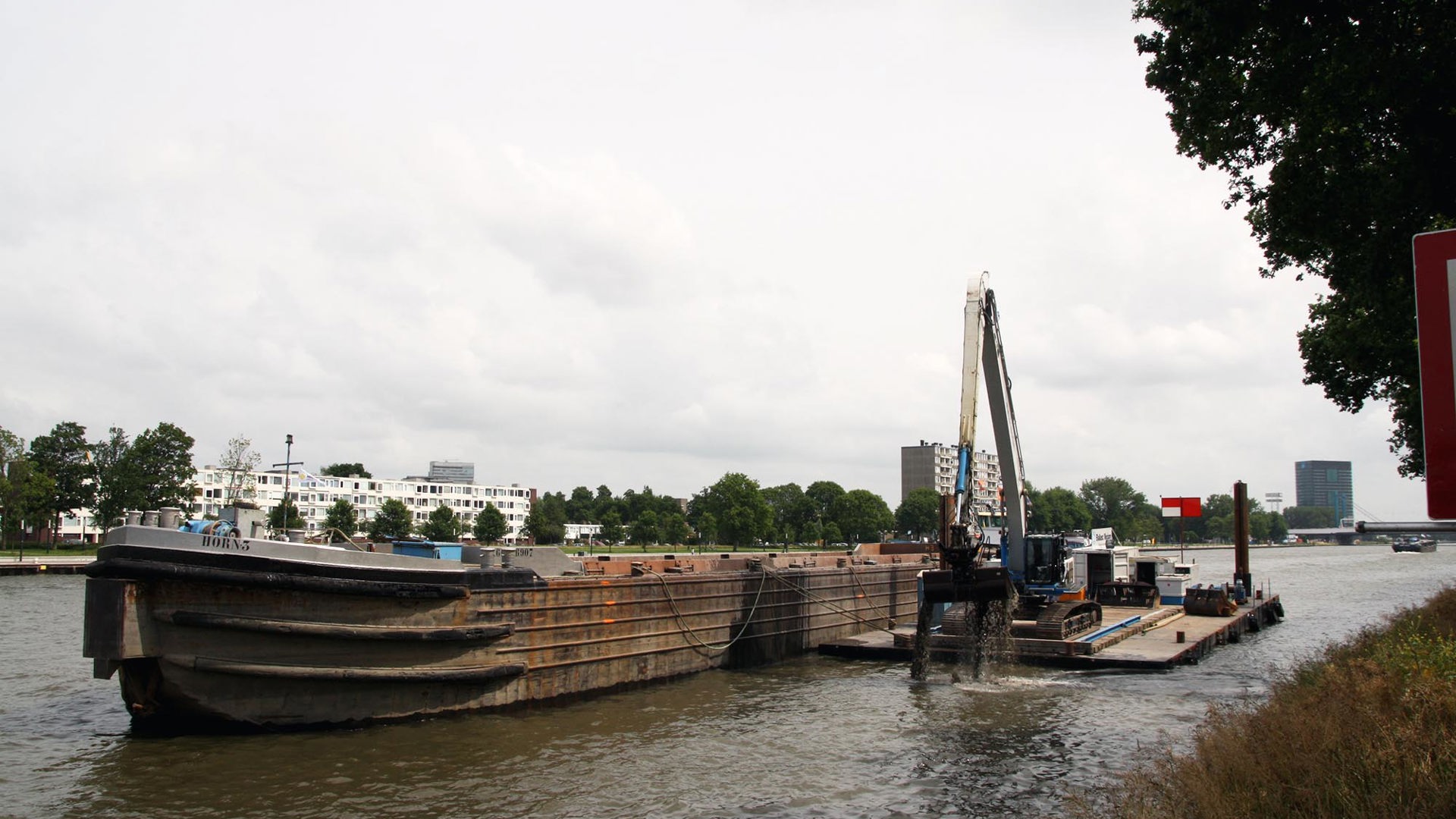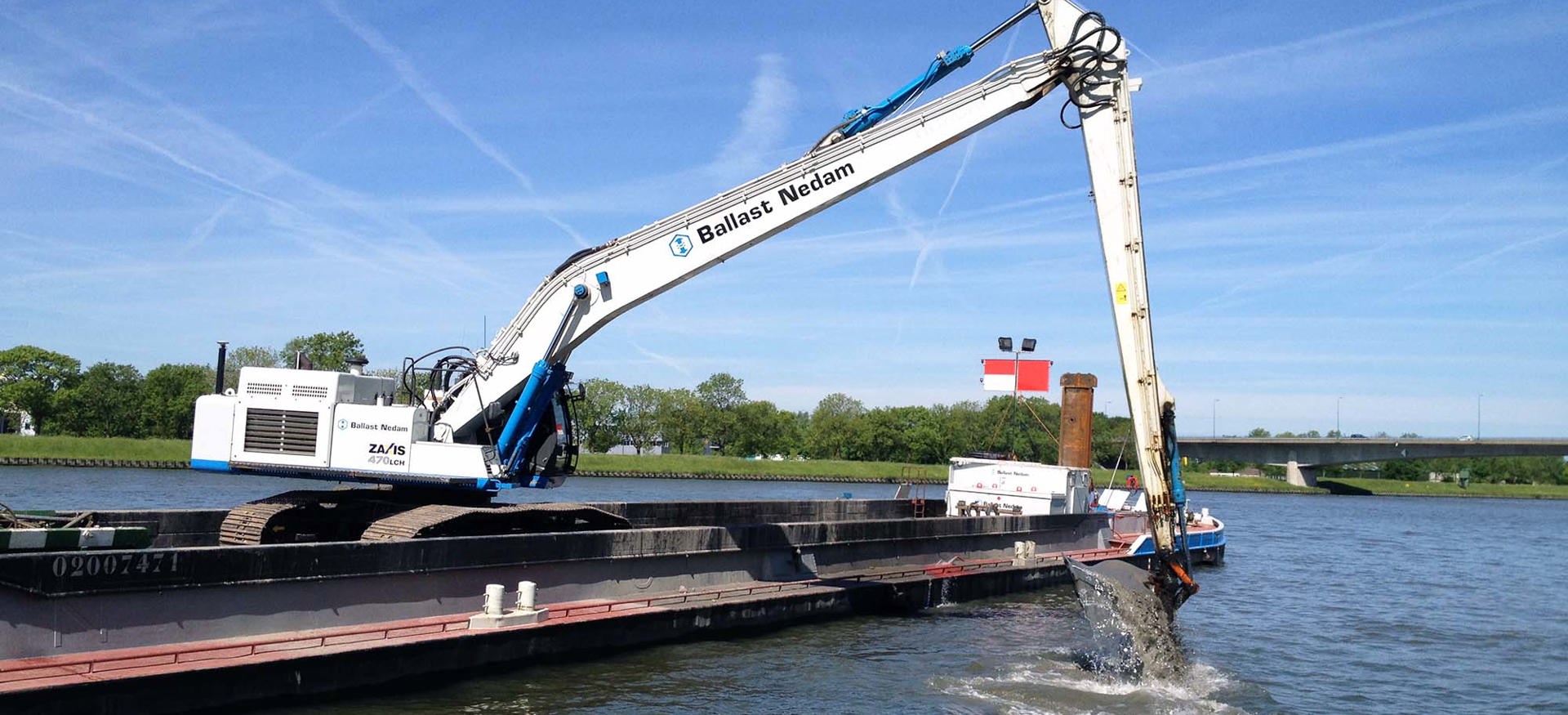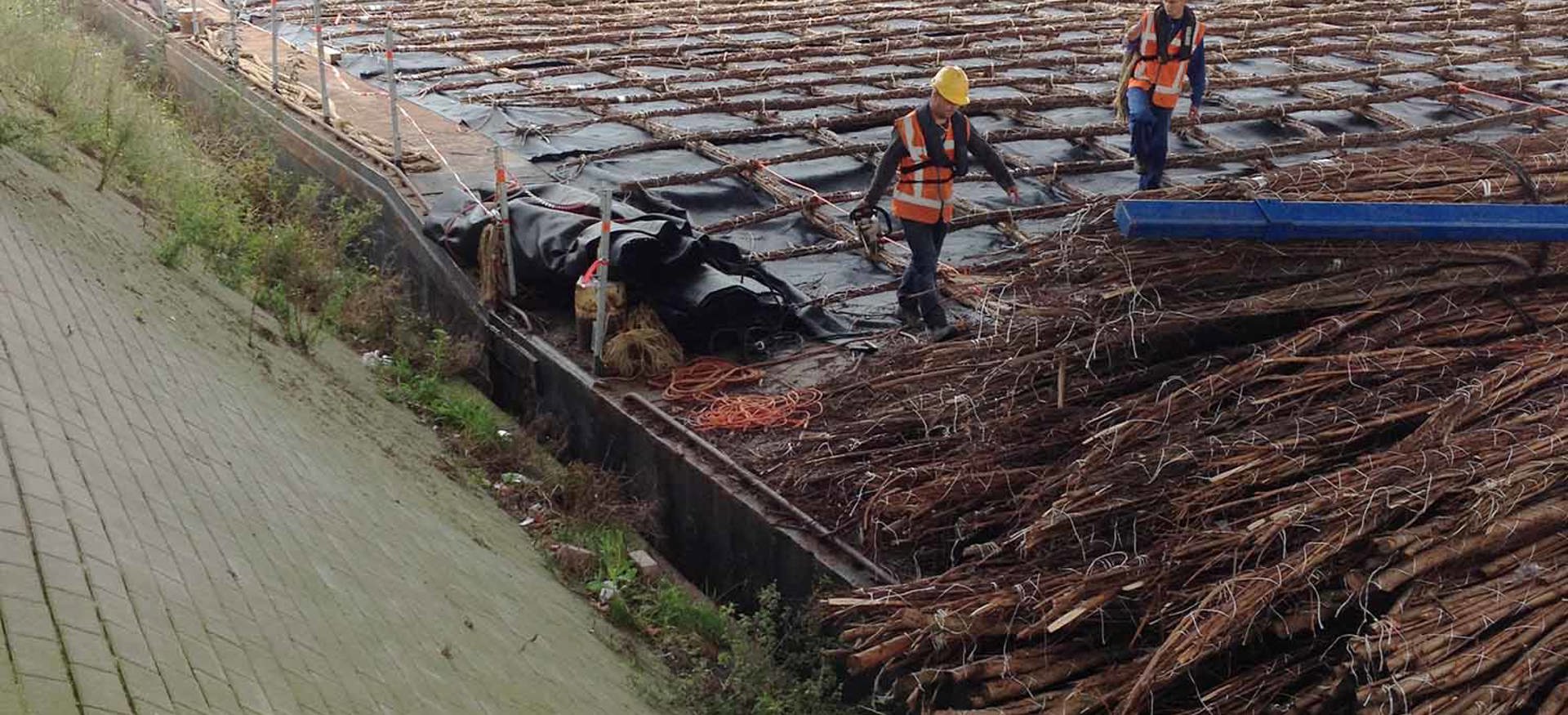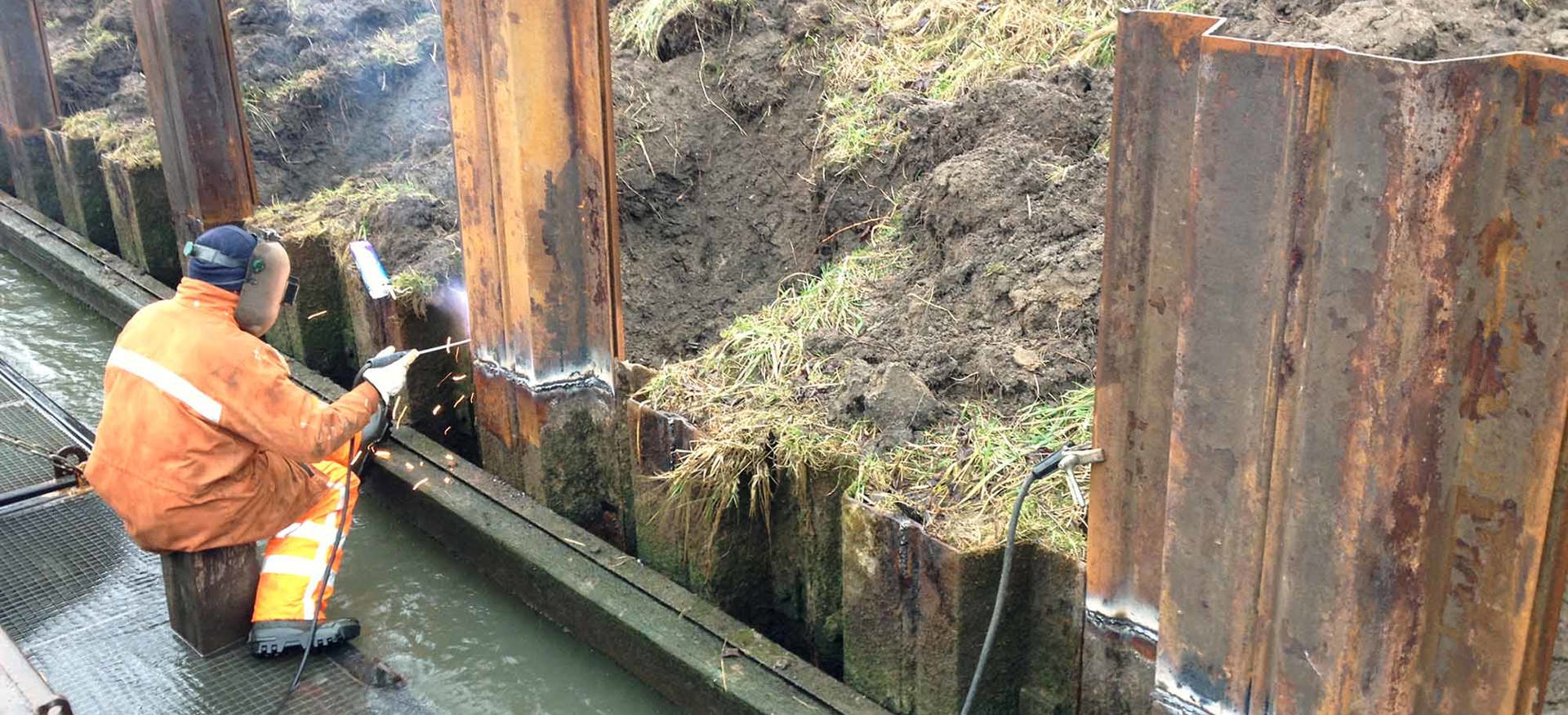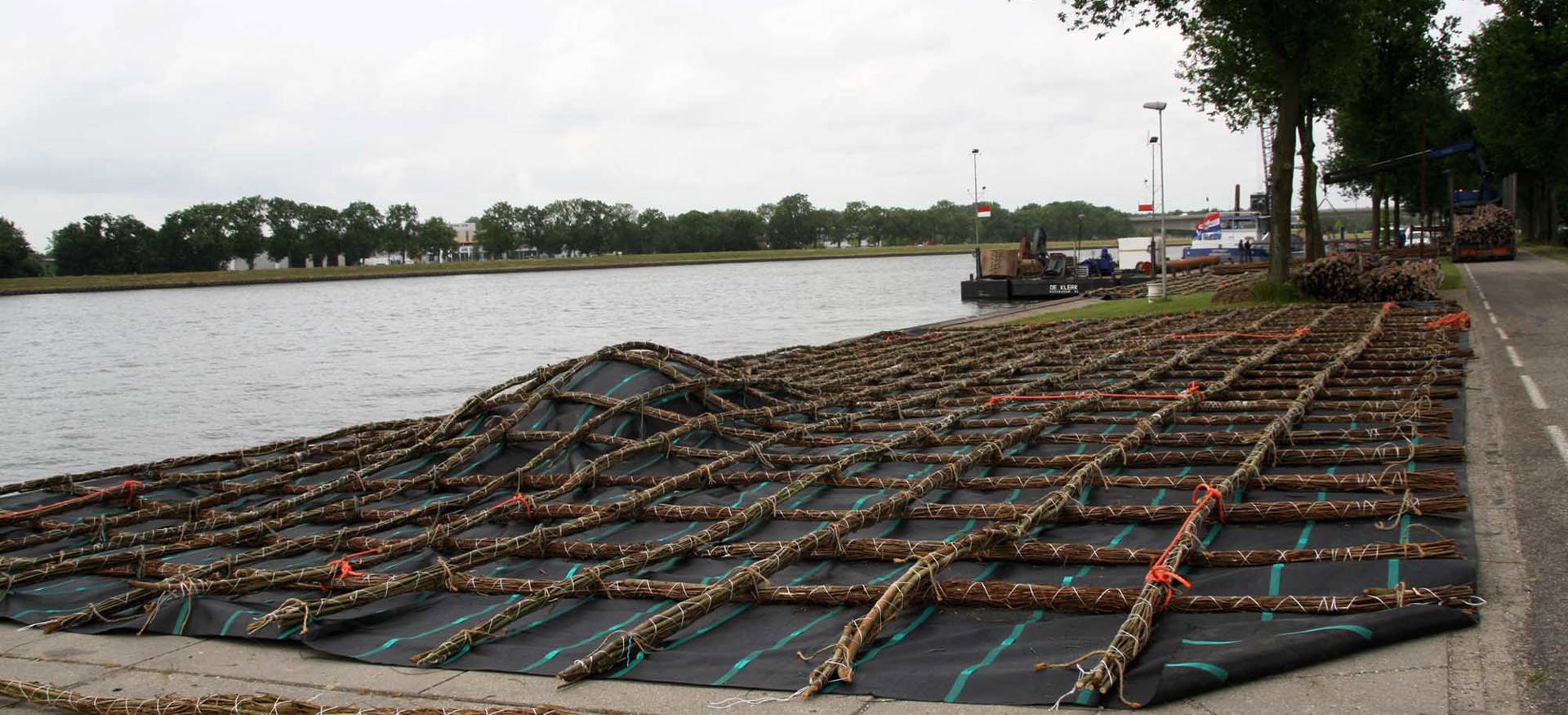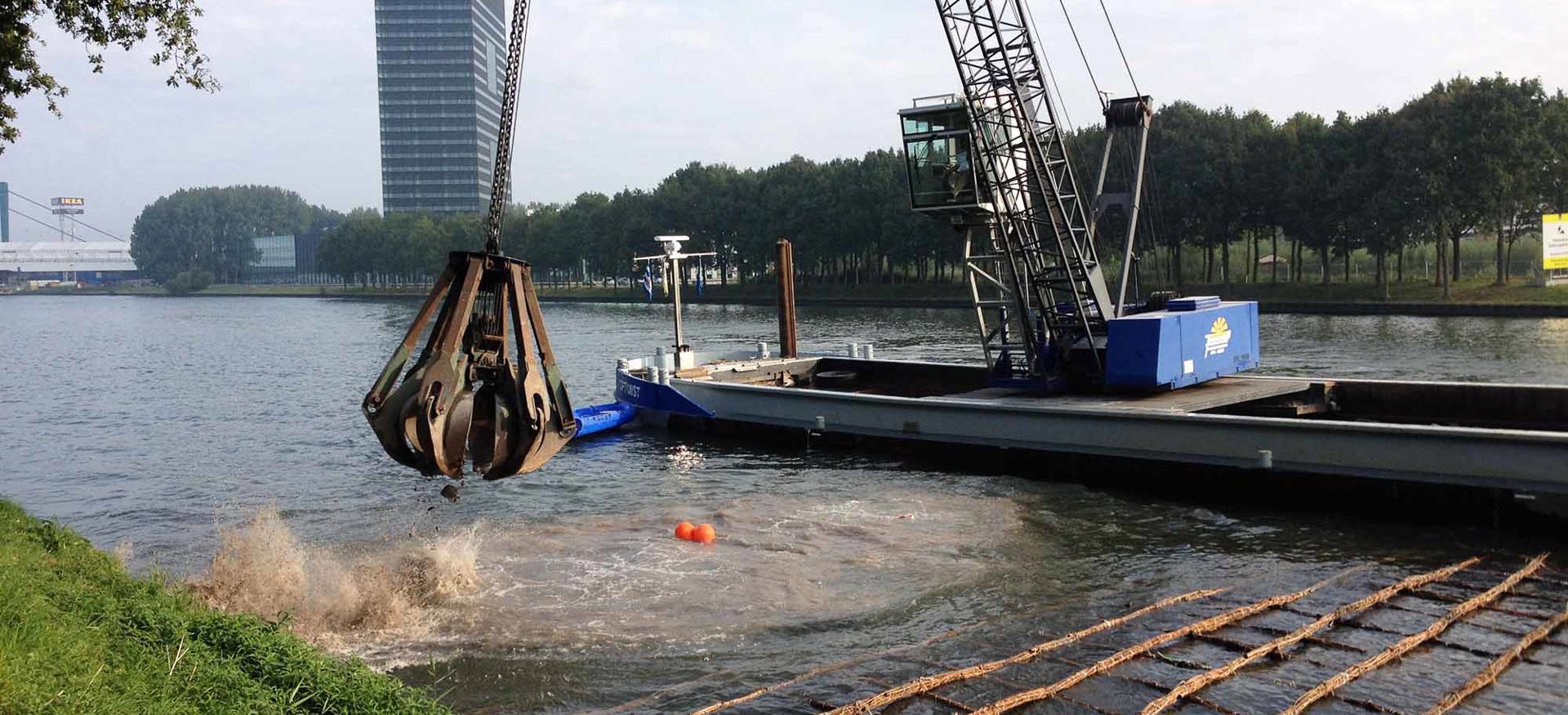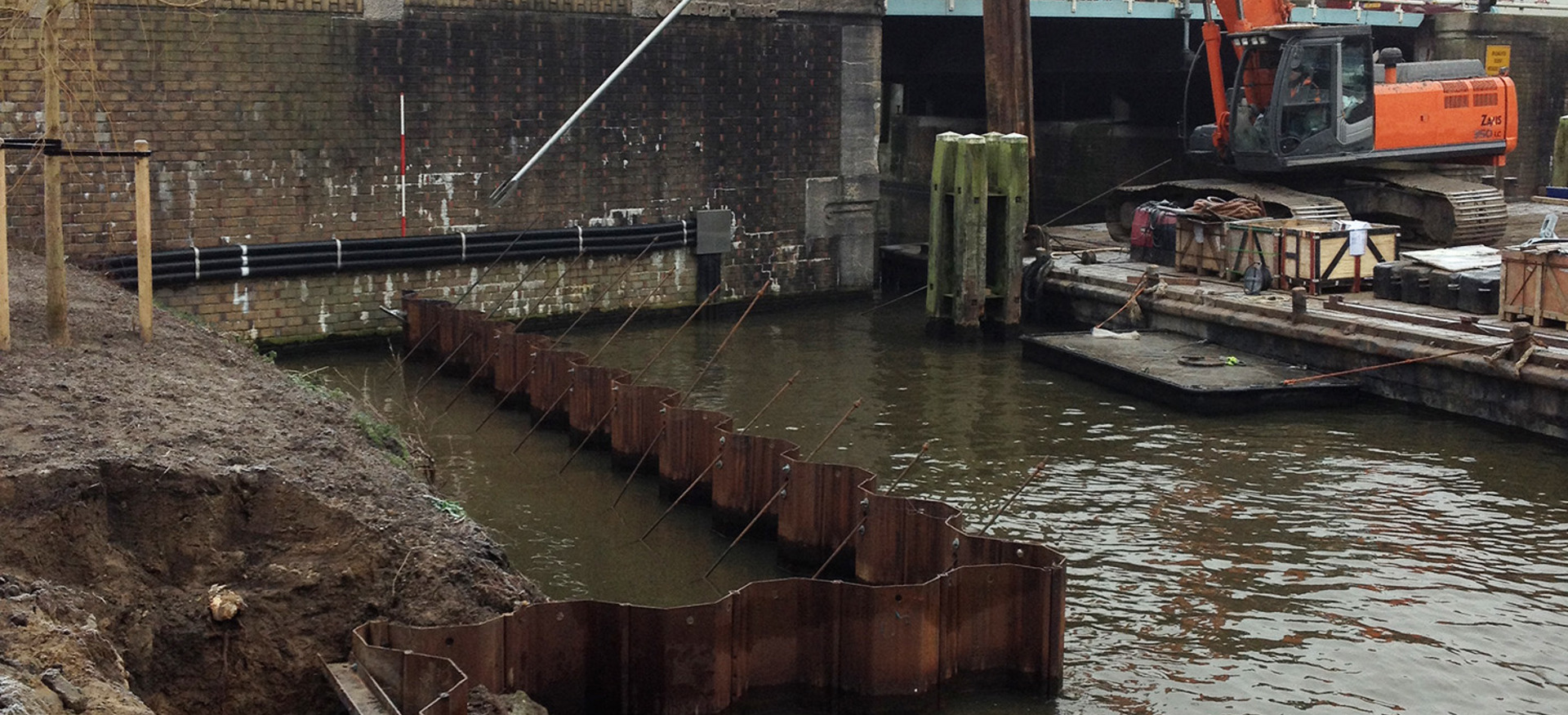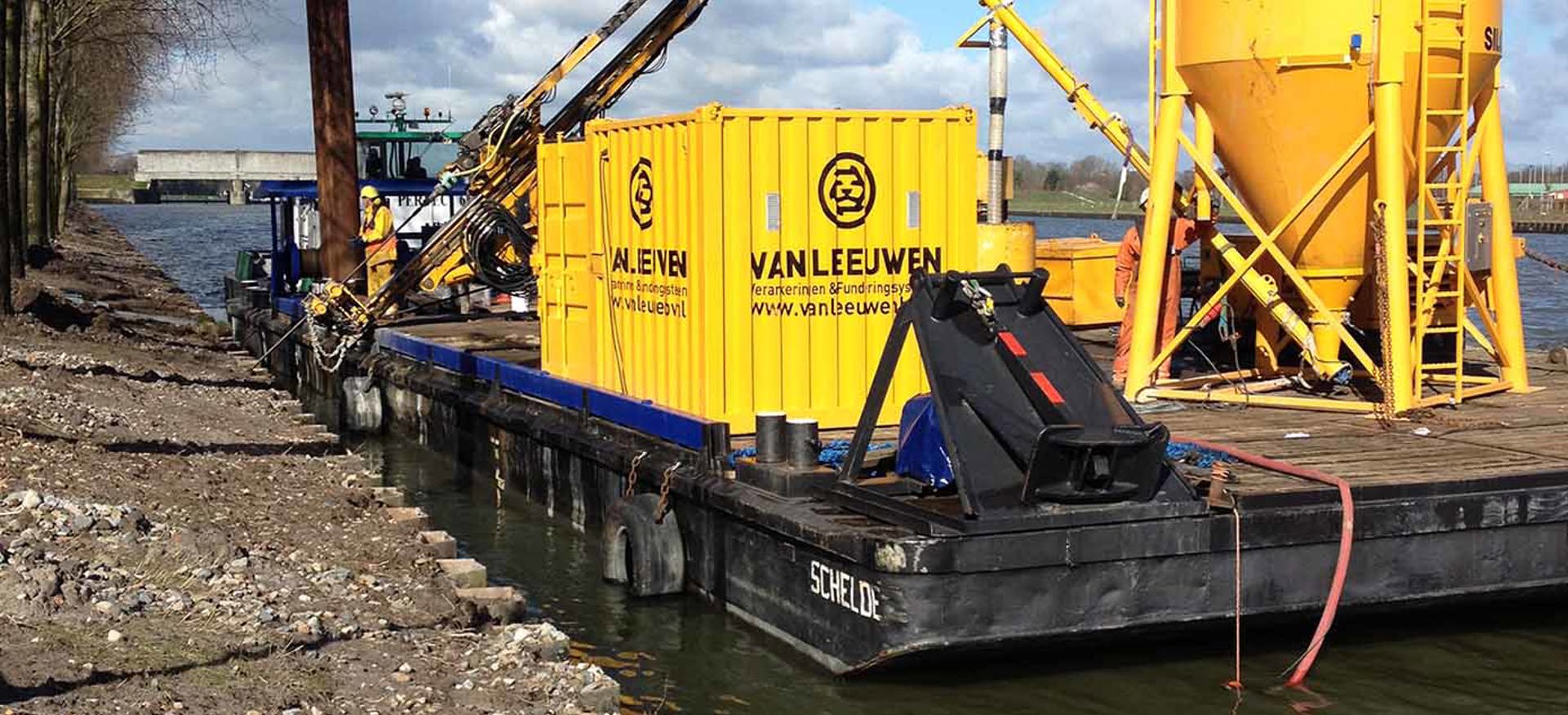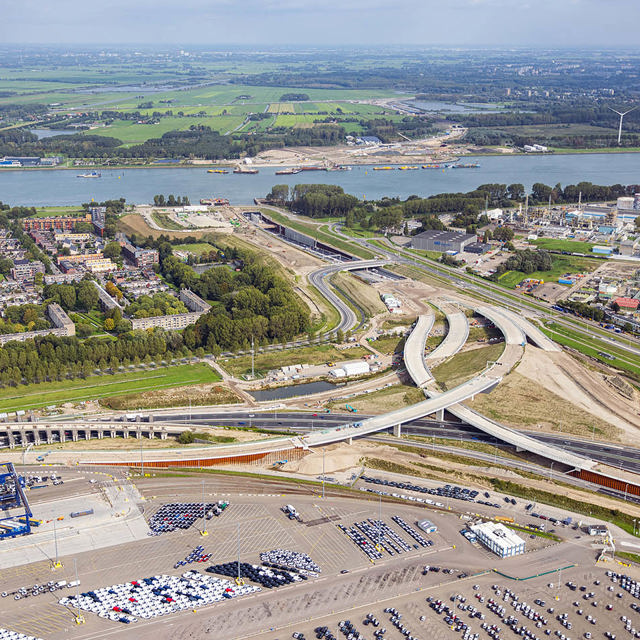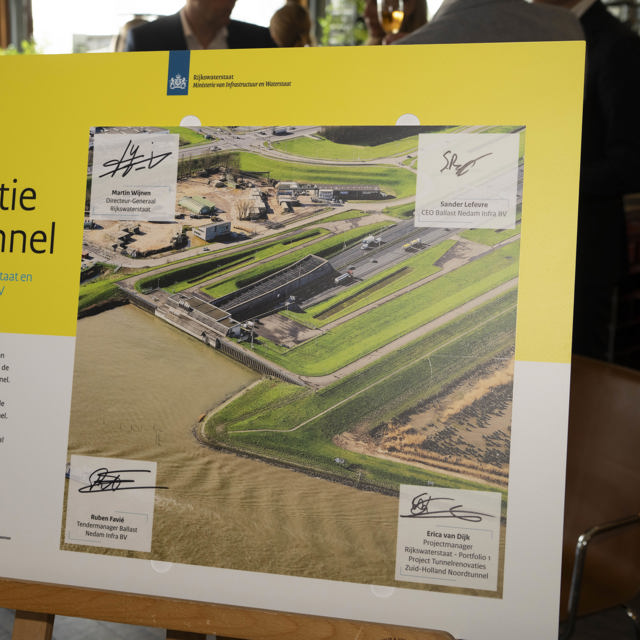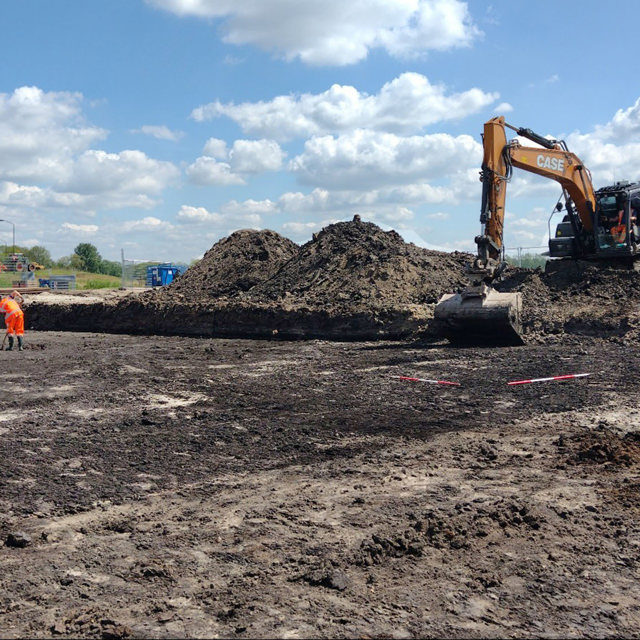Repair of sheet piling along Amsterdam-Rhine Canal
Of the 120 kilometres of sheet piling that runs along the Amsterdam-Rhine Canal, sections totalling roughly 25 kilometres were in poor condition. If left unrepaired, there was a risk of the banks being eroded and, in the most extreme case, of the flood protection function being impaired. The Directorate-General for Public Works and Water Management awarded us the contract to replace or repair the old sheet piling along the Amsterdam to Wijk bij Duurstede section of this canal, the busiest one in Europe.
-
120 thousand m3 dredged
-
25 kilometres of sheet piling repaired
-
6,000 anchors installed
Smart solutions
Using this standardised approach guaranteed that we could implement the project flexibly. It was not only a quick way of working, but it also reduced the engineering costs, as well as costs associated with the 130-plus permit applications that had to be submitted. Further savings were achieved by using an economical alternative anchoring system – the first time this had been employed on such a large scale along the Amsterdam-Rhine Canal. As 6,000 anchors were needed, this had a direct impact on the total cost price.
Satisfied skippers
On a route as busy as this, the disruption to shipping traffic has to be minimised. Although speed restrictions had to be imposed during the work, we only limited the speed of vessels where this was absolutely necessary and divided up the work into short sections along the length of the canal, using patrol vessels to guide shipping. Consequently, skippers did not feel they were being forced to reduce their speed unnecessarily for kilometre after kilometre. Partly as a result of these measures, the number of complaints received in relation to the work was even lower than our ambitious target.
More information?
Sander Lefevre
Managing Director Ballast Nedam Infra Projects a.i.


